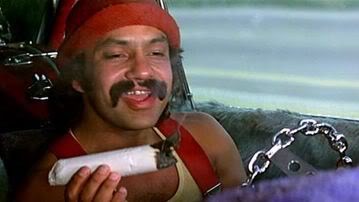
Detecting DUI Drug Impairment
Drug Recognition Expert Testimony
The Drug Recognition Expert program was developed by the Los Angeles Police Department in 1979. With the growing rise in illicit drug use prosecutors were often not able to successfully prosecute an individual for DUI if the defendant was not impaired by alcohol. The DRE program was designed to assist police officers in determining the type of substance which is impairing a driver. The Drug Recognition Expert is allowed to testify as to his findings as an expert witness. This means that he is allowed to give an “expert opinion” as to what substance impaired the driver. DRE testimony in and of itself may be useful to the prosecution in certain cases where impairment is clearly from a certain controlled substance. An example would be an empty bottle of 90 xanax in the driver’s name filled 30 minutes before the time of the stop which is laying in the center console while the driver is passed out at a stop light. However, it doesn’t take an expert to reach a conclusion in such a scenario. Drug recognition expert testimony is most powerful in conjunction with scientific testing of blood or urine. DRE testimony has glaring holes even in conjunction with the testing of biological fluids.
Not All Judges are Buying It
Several courts have held that the 12 step drug recognition expert protocol does not pass the Frye Test as it is not widely accepted by the scientific community. As such, certain courts will not permit a drug recognition expert to testify as to his findings.
For Good Reason
One particular case arising out of Maryland in 2012 specifically highlighted the problems with the DRE protocol. Initially, 12 step examination of a suspect is not standardized. This means that a drug recognition expert does not have to perform the 12 step examination on every single individual he investigates. The DRE has the unfettered discretion to utilize the steps that he wants and to discard the remaining. However, the 12 step process is “preferred.” A DRE will not change his opinion even if scientific testing of a biological fluid reveals no impairing substances. The rational provided is that there are limitations on what laboratories can and cannot detect. While this is true, the proponents of DRE testimony and its accuracy would have the court and jury believe that a non-standardized optional 12 step evaluation conducted by a non-medical professional which is not corroborated by any other evidence is somehow more sophisticated and advanced than the current scientific techniques used by the crime laboratories.
In its opinion, the court further elaborated that the DRE training program improperly classified certain drugs into single categories, misstated the physical and mental effects of certain drugs. The court excluded the DRE testimony ruling that any opinion based on the DRE training given at the time was specious at best.
Drug Recognition Expert Ruling
Hire an Attorney Who is Experienced in Defending DUI Drug Cases
Your choice of an attorney can make or break your case. Especially when your case concerns scientific and quasi scientific evidence. This is a complex area where science meets law and there are not many attorneys that have any additional training or experience to handle these types of cases. You might not remember whether you were examined by a DRE under certain circumstances. Accordingly, if you are arrested for a DUI by drug impairment, you should always consult an attorney who is familiar with the science behind the drug testing and the DRE protocol.
For additional information, please contact
The Law Offices of Michael A. Dye, PA, 1 E Broward Blvd #700, Fort Lauderdale, FL 33301 (954)990-0525 or
The Law Offices of Michael A. Dye, PA, 2 S Biscayne Blvd, Miami, FL 33131 (305)459-3286

